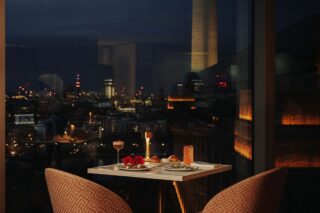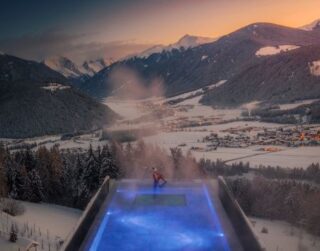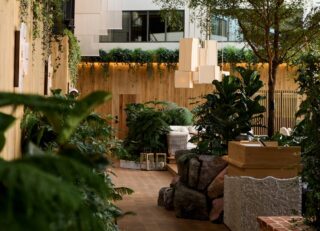This website uses cookies so that we can provide you with the best user experience possible. Cookie information is stored in your browser and performs functions such as recognising you when you return to our website and helping our team to understand which sections of the website you find most interesting and useful.
The luxury resorts that are turning back the clock on The Seychelles
By LJ Burill | 23 January 2018 | Travel
Travel writer LJ Burill explores how luxury resorts are reviving the Seychelles’ most pristine wilderness as they fuse exclusivity with conservation
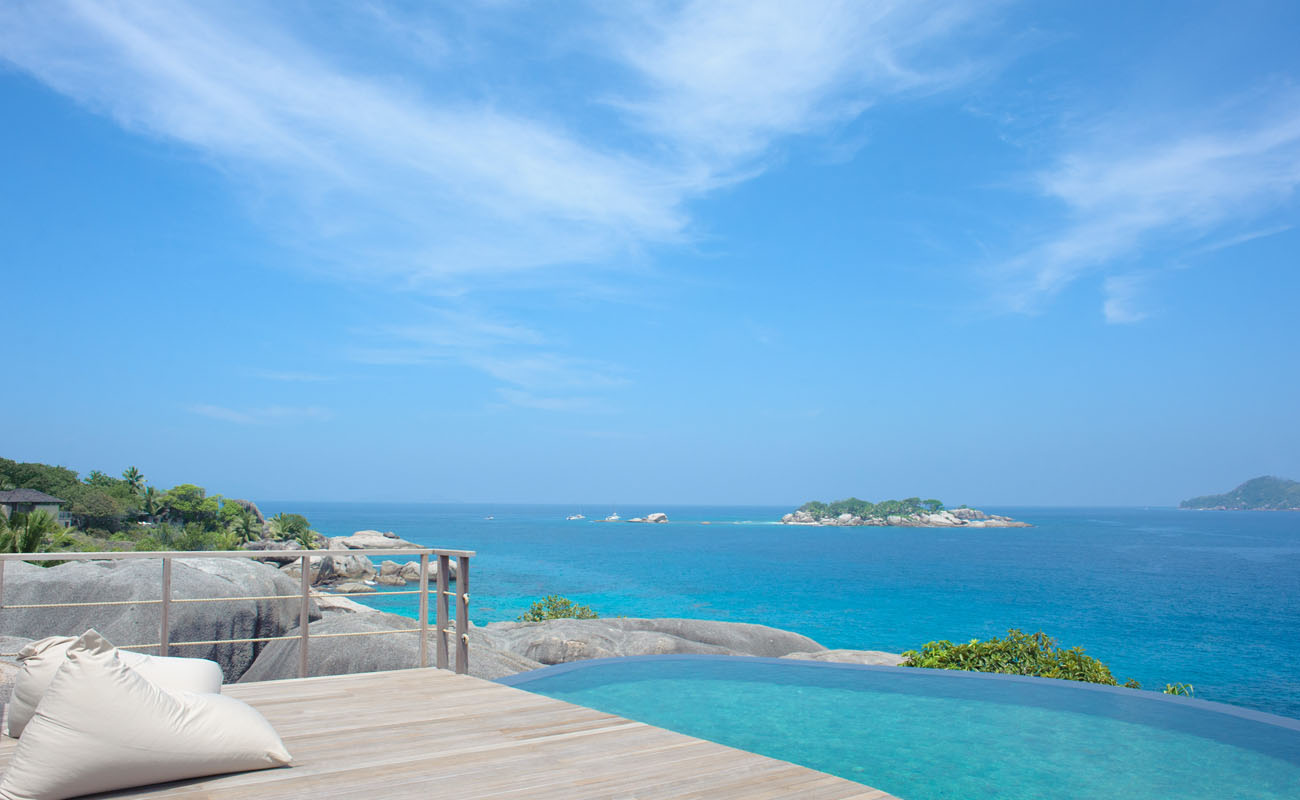
The picturesque collection of islands known as the Seychelles are home to some of the most beautiful beaches in the world, making it the ultimate Instagram #nofilter destination; but another major pull to this holiday hotspot are it's coral reefs and nature reserves, as well as rare animals. North Island, one of the Seychelles’ 45 inner islands, is home to endemic birds such as the endearing Seychelles white eye, as well as over 100 Aldabra giant tortoises. But while it may seem pristine now, it hasn’t always been this way. A former coconut plantation, it’s the conservation work that’s gone into returning the habitat to its original state that we can thank this paradise for. Taking on the name 'Noah’s Ark', this project saw the complete rehabilitation of the island’s natural habitat with the on-going reintroduction of critically endangered local Seychelles species.
A little before sundown I meet Elliot Mokhobo for a guided walk along one of the island’s panoramic trails. Elliot has been on North Island since work on the sustainable resort began, first in the construction of the villas and with the island’s conservation, and now as a passionate guide who leads guests along rainforest trails with unrivalled knowledge of the wildlife here. It’s clear that Elliot takes pride in revealing the ancient tortoises’ personalities and an uncanny ability to take guests to turtles’ nesting sites at just the right time. >>
Related: Bill Bensley’s newest resort in Vietnam is a re-education in luxury
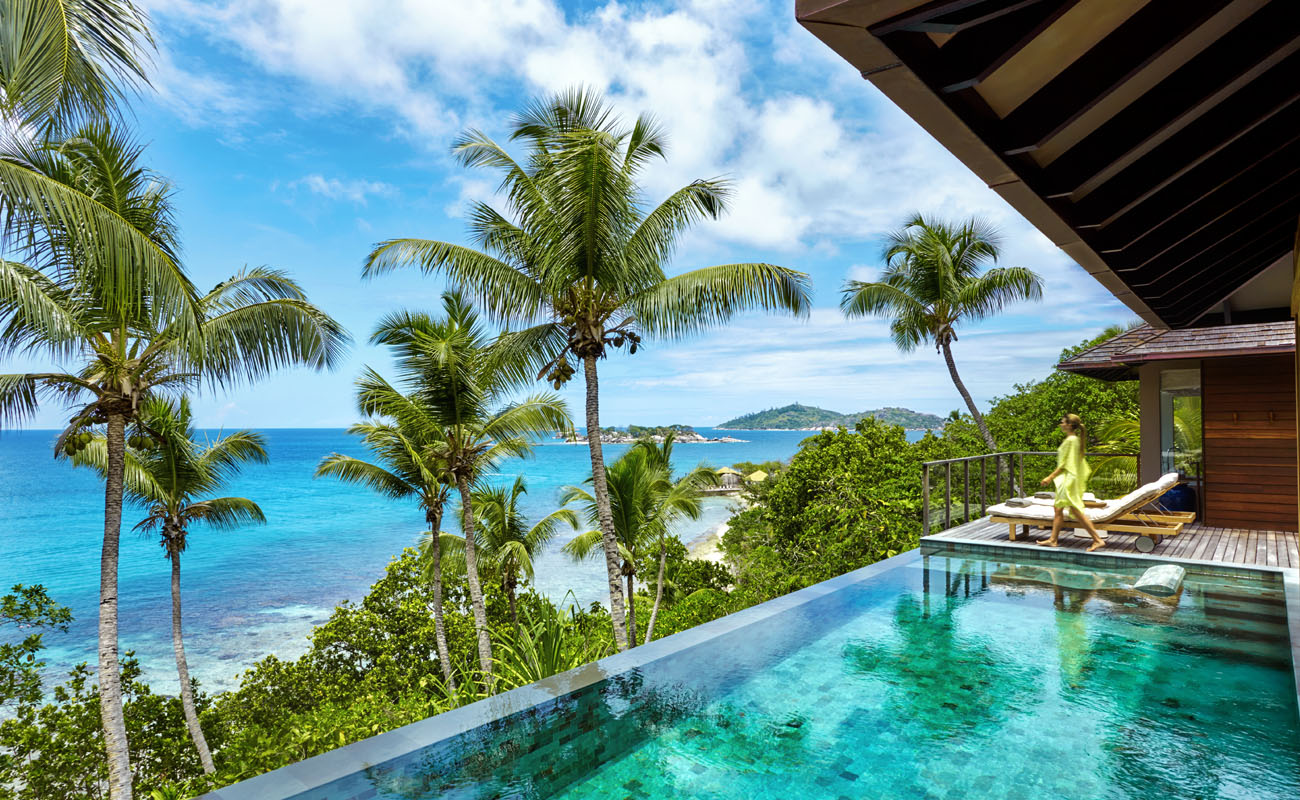
While North Island has established a reputation as one of Seychelles’ most exclusive locations, the newest private island to arrive on the scene is Six Senses Zil Pasyon on Félicité. Fittingly named ‘island of passion’, Zil Pasyon is another resort that’s endeavouring to lay down a legacy for future generations by returning the habitat to its most pristine state. Steve Hill is the ecologist behind this ambitious project having arrived here a decade ago after completing his work in rehabilitating nearby Fregate Island. On the third of Félicité that’s coming close to completion, in excess of 40,000 indigenous trees have already been planted, with plans to reintroduce the birds that were originally here, along with a number of Seychelles terrapins and a small population of giant Aldabra tortoises. We cross the divide between the developed part of the island and the thick, largely inaccessible, wilderness, hiking along a rainforest trail up a steep granite slope to the sound of insects, bird song and distant waves rolling in.
“All of this vegetation needs to be taken away so we can replant the indigenous species,” Steve says pointing to the invasive plants that make it impossible for endemic plant life to grow. “Taking a degraded piece of the world and turning it into something pristine and beautiful is the most satisfying thing you can do. Once the island has been returned to its original state, this will be the number one eco-resort in the world.”
Related: We've found 5 of the most exciting new eco-resorts for an organic getaway
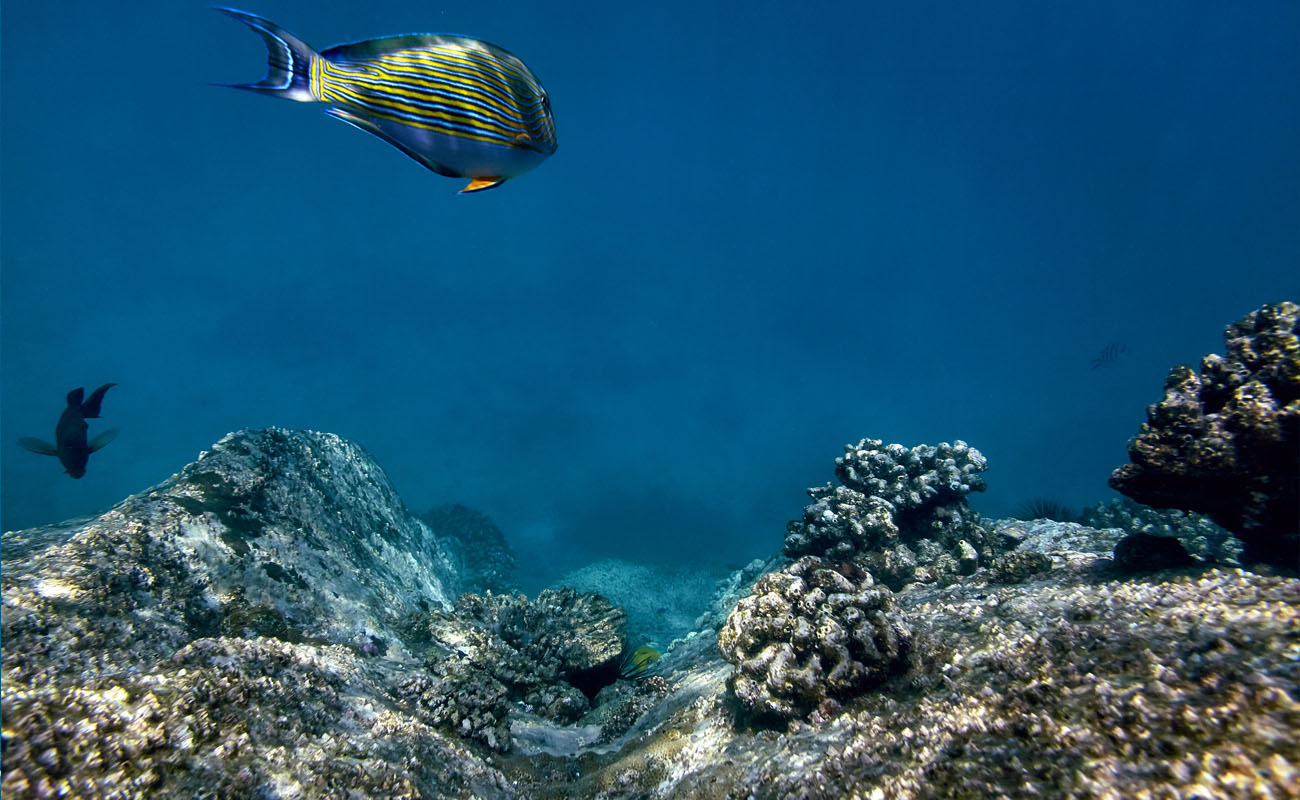
By following the meandering trail, clambering over rocks and ducking beneath unfurling palm leaves we eventually arrive at a grove of coco de mer trees. Shrouded in legend owing to their erotically shaped female seeds and male catkins, coco de mer boast the biggest seeds in the plant kingdom as well as some of the largest leaves, making them one of nature’s great spectacles. Placing the grove at the heart of his plans, Steve hopes to create a network of hiking trails here, leading guests down to the coast and the resort’s organic garden, while keeping the habitat’s rehabilitation the number one priority. “To me it’s a real privilege to be in and responsible for such a remarkable place,” he enthuses, “By the time we’refinished it will be truly unspoilt.”
Of course it’s not just the private islands that are paving the way in luxury eco tourism. Banyan Tree lies within Mahé’s verdant Takamaka region, overlooking one of the Seychelles’ most idyllic beaches, Anse Intendance, on an elevated patch of land once owned by Peter Sellers and George Harrison. Now natural wood villas are positioned on the granite slopes with a colonial style mansion at the resort’s heart. Built around rainforest and some of the biggest wetlands in Mahé, the resort works in partnership with the Marine Conservation Society, which has a conservation centre on the grounds. The society’s wildlife rescue and rehabilitation efforts are based here, enabling guests to get involved by setting out on guided wetland walks, taking part in turtle monitoring and joining beach patrols to see the turtles nesting. In recent years, the Seychelles government has shown recognition of the importance in conserving the island nation’s unique environment. These three resorts unequivocally prove the integral role luxury tourism is playing in this journey.
Read more in the latest issue of Tempus, available now



